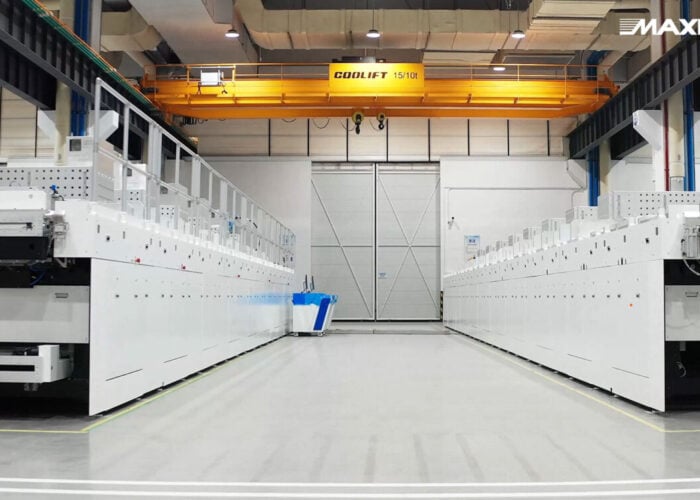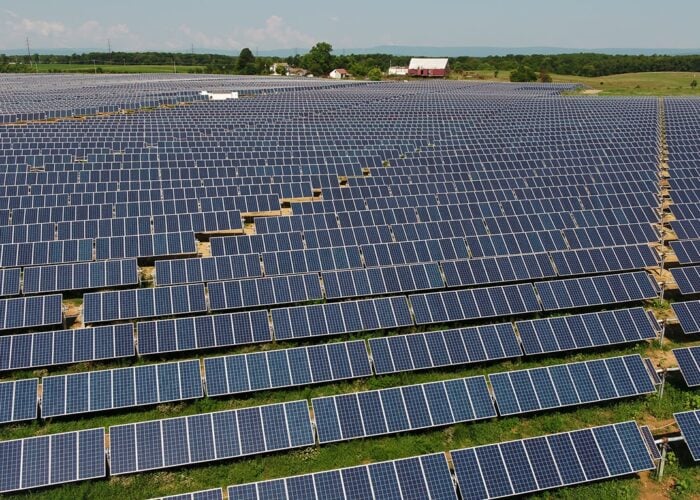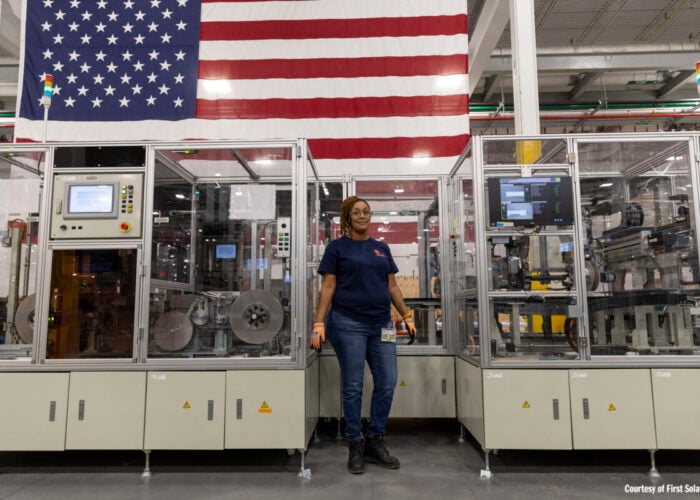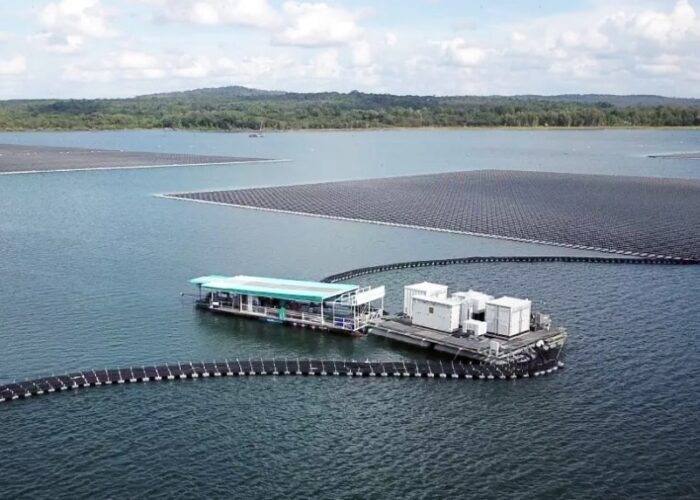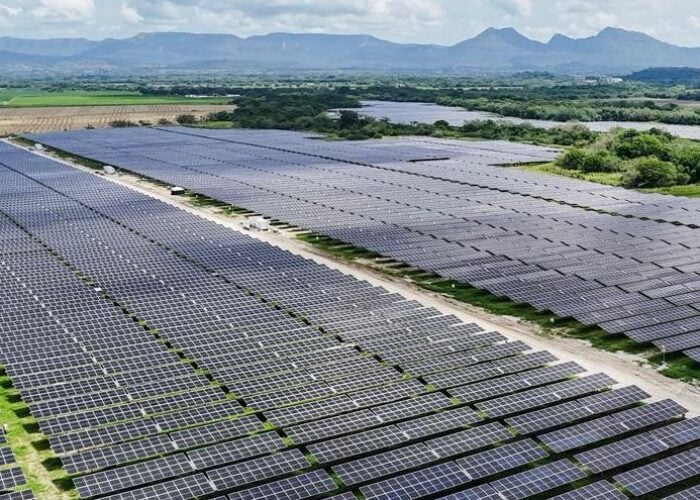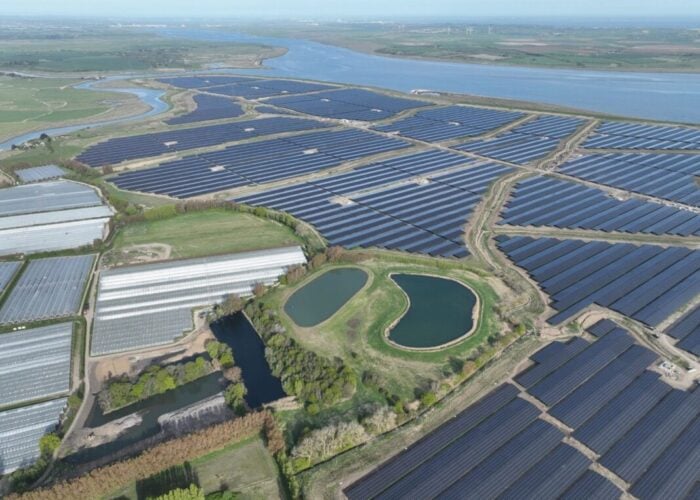The US Department of Commerce has announced preliminary anti-subsidy rates of up to 35% for Chinese solar manufacturers.
At the hearing on Tuesday Wuxi Suntech was hit with rates of 35.21%, Trina Solar with 18.56% and all others with 26.89%.
Try Premium for just $1
- Full premium access for the first month at only $1
- Converts to an annual rate after 30 days unless cancelled
- Cancel anytime during the trial period
Premium Benefits
- Expert industry analysis and interviews
- Digital access to PV Tech Power journal
- Exclusive event discounts
Or get the full Premium subscription right away
Or continue reading this article for free
The preliminary duties have been imposed following a petition from manufacturer SolarWorld maintaining that Chinese manufacturers have been evading US duties first introduced in late 2012 by using manufacturers in other countries to produce cells for assembly into modules in China.
For now the preliminary ruling would seem to give SolarWorld what it had asked for. The DOC document states: “The merchandise covered by this investigation is crystalline silicon photovoltaic cells, and modules, laminates and/or panels consisting of crystalline silicon photovoltaic cells, whether or not partially or fully assembled into other products, including building integrated materials.
“For purposes of this investigation, subject merchandise also includes modules, laminates and/or panels assembled in the subject country consisting of crystalline silicon photovoltaic cells that are completed or partially manufactured within a customs territory other than that subject country, using ingots that are manufactured in the subject country, wafers that are manufactured in the subject country, or cells where the manufacturing process begins in the subject country and is completed in a non-subject country.”
However, the DOC said it had not yet decided if the scope of products covered by the preliminary ruling will remain the same in its eventual duty order, due to be decided later this year.
Richard Weiner, a partner at law firm Sidley Austin, who is representing the Chinese manufacturers, said: “A critical element of this preliminary ruling is that the commerce department expressly declined to rule at this point on the issue of scope. It thus remains to be determined what products may be covered by any eventual duty order.”
The DoC will make a further preliminary decision on 25 July on allegations of dumping of Chinese products in the US.
The US arm of SolarWorld, welcomed the ruling. “Today is a strong win for the US solar industry,” said Mukesh Dulani, president of SolarWorld Industries America. “We look forward to the end of illegal Chinese government intervention in the US solar market, and we applaud Commerce for its work that supports fair trade.”
But the Coalition for Affordable Solar Energy, which has opposed SolarWorld’s action, said it was “deeply disappointed” by the decision.
“The ruling is a major setback for the entire U.S. solar industry because it will immediately increase the price of solar power and cost American jobs in one of fastest-growing sectors of the U.S. economy,” a CASE statement said.
“By accepting SolarWorld’s request to expand the scope of the solar dispute, although they are continuing to entertain scope comments, the Department of Commerce is disregarding decades of legal precedent that define scope by applying the ‘country of origin’ and ‘substantial transformation’ trade rules. The use of SolarWorld’s proposed scope is also fundamentally inconsistent with the department’s own previous ‘scope’ determination in the 2012 solar cell dispute.
“Today’s announcement is just the first determination in a legal process which is set to drag on throughout this fall, taking its toll on the industry with every step. At a time when the U.S. solar industry is primed to continue its record-breaking growth and began 2014 recording the second largest quarter for solar installations in history, US solar businesses now find themselves collateral damage to litigation which is increasing module costs and freezing future investment through pricing uncertainty.
“This is a global dispute that will not be resolved through litigation alone. The best path forward continues to be a negotiated settlement between the US and Chinese governments to end this dispute and create the conditions for growth. But to achieve this, SolarWorld must come to the table and work with the industry to find a settlement that benefits the entire global supply chain. We ask the White House to help by convening the parties for true negotiations, and we urge SolarWorld to make its conditions known and join the rest of the US industry in support of the Solar Energy Industries Association (SEIA) proposal.”
The SEIA has been working on a negotiated settlement to the ongoing trade differences between the US and China, but SolarWorld has so far refused to take part in any discussions.
PV Tech will be reporting further reaction later today.
The Department of Commerce’s ruling document can be seen in full below:
Solar Products US Department of Commerce Anti-subsidy Prelim results
This article was updated from its original version with new comment and information at 1030am on 4 June.

